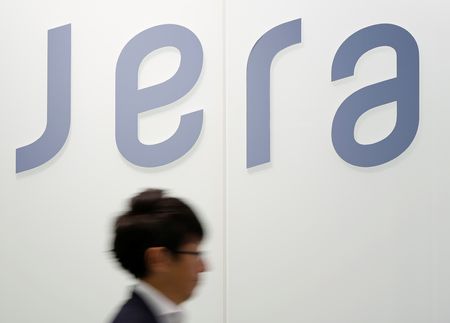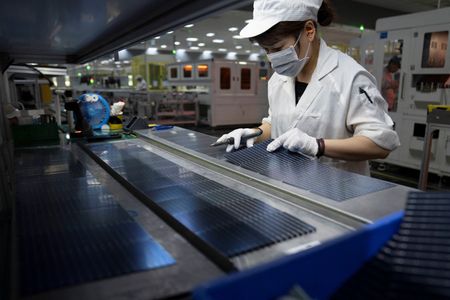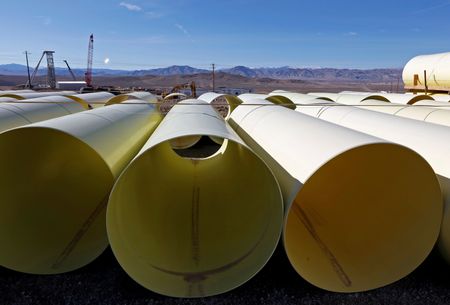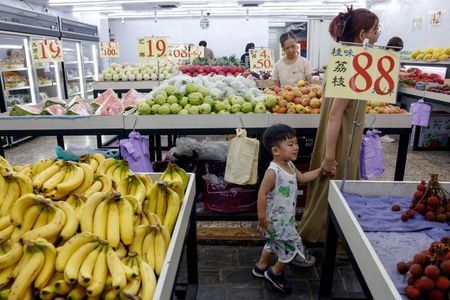By Yuka Obayashi and Katya Golubkova
TOKYO (Reuters) -JERA, Japan’s biggest power generator, on Thursday posted a 1% decrease in net profit for the first quarter of the fiscal year 2025 to 92.5 billion yen ($621 million) amid weaker overseas power generation business, including from renewable energy.
JERA, a joint venture of Tokyo Electric Power and Chubu Electric Power, saw net profit in the same period of last year at 93.4 billion yen. Its revenue rose by 8.5% to 830.8 billion yen on stronger domestic electricity sales.
“Offshore wind projects in Europe were impacted by weaker wind conditions,” Naohiro Maekawa, executive officer, told a news conference.
Asked about its renewable energy policy, Maekawa said that JERA is facing a challenging environment due to rising costs, like other firms worldwide, but it will continue its initiatives toward the realization of a decarbonized society.
The company kept its full-year profit forecast unchanged at 230 billion yen.
Last week, Japan struck a trade deal with U.S. President Donald Trump that lowers tariffs on auto imports and spares Tokyo from punishing new levies on other goods in exchange for a $550 billion package of U.S.-bound investment and loans.
The impact of U.S. tariffs on electricity demand from manufacturing industries has been limited so far, Maekawa said, adding that its electricity sales in the current fiscal year were expected to remain flat from last year.
In June, JERA, Japan’s biggest buyer of liquefied natural gas, agreed to new supply deals for U.S. LNG from four projects to diversify its global portfolio away from its reliance on Australia.
“In light of future geopolitical risks and other changes, it’s vital to expand our geographic focus to the U.S., the Middle East and beyond,” Maekawa said.
While Australia and Asia currently make up more than half of JERA’s LNG portfolio, the recent deals are expected to raise the U.S. share from 10% now to 30% by the early 2030s.
“We believe boosting LNG imports from the Middle East and the U.S. will enhance supply stability and cost efficiency,” he added.
($1 = 148.8600 yen)
(Reporting by Katya Golubkova; Editing by Himani Sarkar and Stephen Coates)









